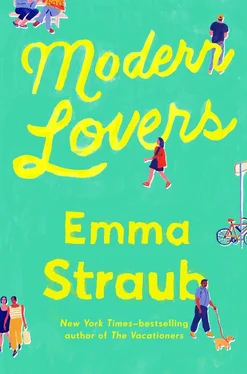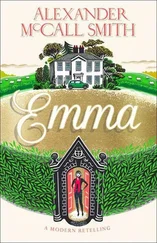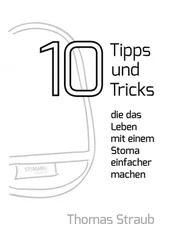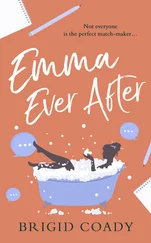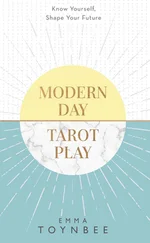“I saw your poster,” Andrew said. Inside, the house itself was nothing special — sort of falling down, really, but the floors were clean and painted white, as were all the walls. The thin curtains were pulled to the side, and light came pouring in. Andrew immediately felt at home.
“This is EVOLVEment,” the man said. “I’m Dave. Come on in.” He spoke softly, the way that people did when they knew others were going to listen. There was no reason to speak loudly, not in this house. Andrew got it right away. This was calm. This was a sanctuary. He thought about the monks he’d seen in Tibet, and upstate, when he’d gone for silent retreats. This was one of those special places, or it was going to be, and right here, in his own neighborhood.
“What can I do?” Andrew asked. His hands were empty. He wanted to help.
Hyacinth sat forty-two people. On a good day, the restaurant was half full at lunch and then busy from six p.m. until nine thirty p.m., with stragglers hanging around the long, narrow bar until eleven, when they closed. Even ten years after opening, Jane couldn’t charge what she wanted to charge — no one would pay twenty-seven dollars for skate this deep in — but she got by. There was a small desk right next to the hostess stand, and that’s where Jane liked to sit when she wasn’t in the kitchen, or upstairs in the office, or downstairs checking the walk-in, or walking the floor, which the servers hated. Jane had to wedge her body in between the wall and desk to keep from getting elbowed by the hostess, but she didn’t mind.
She had sous-chefs now, good people whose taste buds she trusted, but there was no substitute to being in the room herself. Jane liked to sweat, and to yell, and there was no better place to do that than in a tiny restaurant kitchen. Elizabeth had found the space — they had looked for months, waiting for the right place, and Elizabeth had taken it on like her own little pet project. They didn’t just look in Ditmas, though that’s what they wanted, of course. There would be less foot traffic, but they both loved the idea of helping make the neighborhood a place where people wanted to live , not just sleep. Jane and Zoe had fallen in love eating food, talking about food, about what they dreamed of eating down the block from their door. Zoe was old-fashioned and wanted to open a French bistro, somewhere to eat steak frites at night and soft eggs during the day. Jane wanted to do Thai, or better yet, Vietnamese. There was nothing in the neighborhood but pizza and a Chinese place with bulletproof glass in front of the cashier. There were so many holes, and they wanted to fill one.
They’d looked everywhere — in Williamsburg, in Carroll Gardens. Nothing was right. But when Elizabeth called and said she’d found the space, Jane could hear in her voice that she was right — she and Zoe walked over holding hands, giddy. Hyacinth was one of their girl names, for when Ruby had a little sister, but Ruby was already in first grade and it didn’t seem like she was going to get a sister after all, so Hyacinth went up on the wooden sign and got painted in gold leaf on the door, and they were open for business.
Jane was in charge of food, and Zoe was in charge of everything else. She picked out the chairs and the water glasses, the flatware and the floral arrangements. She did the payroll and the billing. She dealt with the staff, which was the worst part of owning a small business — someone was always getting fired, or showing up late, or hitting on too many customers, or on drugs. As long as they didn’t need money or sleep, life was easy. Ruby’s babysitter would bring her straight to Hyacinth after school, and when they couldn’t afford the babysitter anymore, Ruby would come on her own, and sit at the bar with her homework. Elizabeth and Andrew would pat her on the head, and she’d join them for some french fries. The regulars loved it — their own little Brooklyn Eloise. After dark, Zoe would take her home and put her to bed and then come back if they were really in the weeds. They had an elderly neighbor who fancied herself the mayor of Argyle Road, and both Jane and Zoe felt sure that she would never let anything bad happen to Ruby while they were out.
It was early, just after nine. They didn’t open for lunch until eleven. Jane shut the window with her menus and her lists for the purveyors and opened the Internet. She wasn’t really looking for a new place to live, not yet. Once Ruby left, wherever and whenever that happened, and when Zo found a place she liked, then she’d look. If it really happened. Jane wasn’t in a rush. If it were up to her, they’d stay married forever. So what if they weren’t as happy as they’d ever been? They were adults, with a nearly grown child. “Happy” was a word for sorority girls and clowns, and those were two distinctly fucked-up groups of people. They were just wading through the muck like everyone else.
At twenty-four, Zoe Bennett was the sexiest thing Jane had ever seen. They met at Mary Mary’s, on Fifth Avenue, a proper lesbian dive bar that was always full of service professionals, especially after midnight. Jane went two, sometimes three times a week and rarely did more than drink beer with her friends, but one night, this electric little nymph shows up at the end of the bar, pirouetting around like she owned the place, and by the end of the night, she did. Jane was working as a garde-manger at the Union Square Cafe, and Zoe was a hostess at Chanterelle. They didn’t even talk that first night — Jane swore that Zoe fell onto her lap while singing along to a Bonnie Raitt song on the jukebox, but Zoe didn’t remember doing any such thing. They were both lushes, ready to eat and drink until the reservoir was empty and the lights were on. Three weeks later, Jane moved in.
The bell over the door rang, and Jane looked up. Johnny, her UPS man. He wheeled in a tower of boxes — paper towels, toilet paper, all the things she never wanted to have to think about. That was Zoe’s job, keeping them stocked and ready for the apocalypse. They hadn’t figured that part out yet — what about Hyacinth? It would be strange for Zoe to keep doing her job, but it would be stranger for her to stop. Everything was in both of their names. They didn’t need to be married for them to keep working together, of course, but what if Zoe started sleeping with Allie, the adorable hostess? They always joked about her, about how she was in love with Zo, but now, if she were single, what if it were true? Jane could see it so clearly — peeking out of the kitchen and seeing Zoe touch Allie on the back, or tuck her hair behind her ear. Maybe Jane would fire her before Zoe got the chance — she wasn’t great at her job anyway. It wasn’t part of Jane’s job, dealing with personnel, but she was the chef — everything was her job, really.
“Hey, hey,” Johnny said. He nodded toward the supply closet. “Want it over there?”
“Please,” Jane said. She wasn’t just talking to him, she was beseeching the universe. When Johnny was gone, she locked herself in the bathroom and cried. It was the only room with a door that locked. She’d told her mother that they were considering splitting — not any friends, not the staff, no one else. Jane thought that if no one ever found out, it might not really happen, the way they didn’t tell anyone that Zoe was pregnant until she was four months along, or like when Jane was sixteen and knew she was gay but didn’t come out until she was twenty. If it really happened, her parents were going to be crushed — they’d always loved Zoe, her mother in particular. Maybe Jane could avoid talking to them entirely for a few months, or a year. Maybe they didn’t have to speak until Ruby got married, at which point they might be eighty and hard of hearing and not fully understand. Maybe she could wait until they were dead.
Читать дальше
